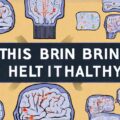Mental health issues like anxiety, depression, and stress are increasingly common. Many people turn to prescription medications for relief, but these often come with side effects. An emerging alternative is natural nootropics – supplements that may support mental health without negative effects.
What Are Nootropics?
Nootropics are substances that may enhance cognitive function. They include vitamins, minerals, herbs, and other compounds. While research is still ongoing, some nootropics show promise for:
- Reducing anxiety and stress
- Lifting mood and relieving depression
- Sharpening focus and concentration
- Boosting memory and learning
Why Consider Natural Nootropics?
Many prescription psychiatric medications target neurotransmitters in the brain to influence mood and cognition. While often effective, they also commonly cause side effects like insomnia, headaches, nausea, and loss of libido.
Natural nootropics generally don’t force changes in neurotransmitters. Rather, they provide building blocks for the brain to regulate its own functioning holistically. This means they tend to be well-tolerated without significant side effects.
Best Natural Nootropics for Mental Health
L-Theanine
L-theanine is an amino acid found in green and black tea. It’s been shown in research to increase alpha brain waves, indicating a more relaxed yet focused state of mind.
Studies suggest L-theanine may help with:
- Anxiety reduction
- Stress relief
- Improved sleep quality
- Enhanced attention and information processing
Omega-3s
Omega-3 fatty acids like EPA and DHA play vital roles in the structure and function of brain cell membranes. Our bodies can’t make them, so we have to get them through food or supplements.
Omega-3s may help with:
- Mood stabilization
- Lowering depression risk
- Reducing inflammation involved in mood disorders
Rhodiola Rosea
Rhodiola rosea is an adaptogenic herb that may help the body adapt to stress. Research suggests it can enhance mood, cognition, and mental performance under fatigue or stressful conditions.
Studies show Rhodiola may assist with:
- Alleviating anxiety and depression
- Improving concentration, memory and work performance
- Reducing burnout and improving well-being
Frequently Asked Questions
Are natural nootropics safe?
When taken as recommended, most natural nootropics have a low risk of significant side effects. However, it’s always best to consult your doctor before starting any new supplement, especially if you take medication or have underlying health conditions.
How quickly do nootropics work?
It depends on the specific nootropic and the individual. Some compounds like L-theanine may be felt within an hour, while others like Rhodiola take a week or two of consistent use to reach full effect.
Can nootropics help with ADHD?
A few natural nootropics show promise for supporting attention and focus in those with ADHD, including omega-3s, L-theanine, Rhodiola rosea and bacopa monnieri. More research is needed to confirm effects.
What foods contain natural nootropics?
Food sources of nootropic compounds include fatty fish like salmon for omega-3s, green tea and dark chocolate for L-theanine, rhodiola and ashwagandha supplements derived from their respective plants, and turmeric containing curcumin.
What is the best natural nootropic stack?
There is no universally “best” nootropic stack. The optimal combination of supplements depends on each person’s unique brain chemistry and needs. Many find an L-theanine + Rhodiola stack helpful for reducing stress and enhancing cognition.









